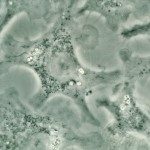Lien vers Pubmed [PMID] – 12032143
J. Biol. Chem. 2002 Aug;277(31):27927-34
Endotoxin tolerance is characterized by a decreased production of proinflammatory cytokines by cultured leukocytes in response to lipopolysaccharide (LPS) following a first exposure to the same stimulus. Gamma interferon (IFNgamma) and granulocyte/monocyte colony-stimulating factor (GM-CSF) are immunostimulatory cytokines that prime monocytes and prevent endotoxin tolerance. In this study, we show that the deactivating effects of LPS, as well as the priming effects of IFNgamma and GM-CSF or their capacity to restore tumor necrosis factor (TNF) production by LPS-tolerized human monocytes are independent of the modulation of TLR2, TLR4, or MD-2. In monocytes pretreated with IFNgamma or GM-CSF, interleukin-1 receptor-associated kinase (IRAK) expression is up-regulated. After LPS stimulation, an increased IRAK kinase activity, a higher MyD88/IRAK association, and a stronger NF-kappaB activation are observed. In contrast, in LPS-tolerized monocytes, IRAK expression and kinase activity, IRAK/MyD88 association, and NF-kappaB activation are inhibited. Furthermore, the prevention of tolerance by IFNgamma and GM-CSF was independent of IRAK kinase activity. Our results suggest that these cytokines prevent endotoxin tolerance induced by low but not by high doses of LPS by inhibiting IRAK degradation and by promoting its association with MyD88 after a second LPS stimulation, which in turn leads to NF-kappaB activation and TNF production.

